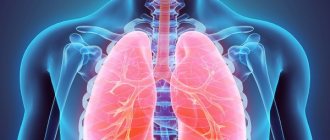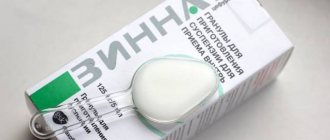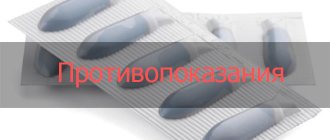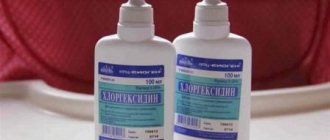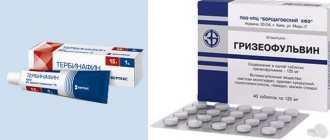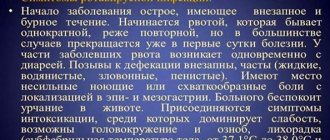Laryngitis is an inflammation of the larynx and upper trachea. Most often it occurs against the background of hypothermia, frequent smoking and drinking alcohol, prolonged exposure to dry and dusty rooms, colds, infectious diseases (acute respiratory infections, influenza, bronchitis, scarlet fever, whooping cough, measles, rubella, pneumonia, allergies) and others.
Tablets for laryngitis, prescribed by a doctor, help soften the mucous membrane of the respiratory tract, have a mucolytic (sputum thinning) effect, and eliminate bacteria or viruses that cause the disease.
Causes of acute laryngitis
The main cause of acute inflammation of the larynx is viruses that cause acute infectious diseases (influenza, scarlet fever, diphtheria). Also a common cause of laryngitis is overstrain of the ligaments, mechanical and chemical irritation.
In a normal state, the vocal cords function easily and elastically, opening and closing smoothly, and sound is produced with vibration. When the ligaments become inflamed, they become rough and swollen, and the voice becomes hoarse, and then may disappear altogether (aphonia).
In adults, the cause of laryngitis, in addition to infection, can be:
- formation of ulcerative lesions in the vocal cords area,
- neoplasms on the mucous membrane of the ligaments (nodules, polyps),
- chronic diseases of the ENT organs (sinusitis, sinusitis, adenoids),
- paralysis of the vocal cords due to stroke, trauma or malignancy,
- age-related changes.
Factors contributing to the development of acute laryngitis:
- hypothermia,
- unhealthy habits (smoking, alcoholism),
- unbalanced diet, obesity,
- overstrain of the vocal cords,
- inhalation of air contaminated with dust and chemicals,
- harmful working conditions,
- reduced immune defense of the body.
In most cases, the causative agent of this disease is the following microorganisms:
- staphylococcus,
- streptococcus,
- Pneumococcus,
- hemolytic and Staphylococcus aureus,
- catarrhal micrococcus.
It is possible that laryngitis can be caused by several types of microorganisms at the same time. Acute laryngitis is characterized by microepidemic outbreaks, most often occurring in organized children's groups.
First manifestations
The development of the disease begins with the incubation period, when practically no signs of damage are yet observed. Common manifestations of the onset of the pathological process are a slight feeling of weakness, deterioration in performance and a state of malaise, which last from a day to 4-6 days.
Next, the active development of inflammation occurs. The onset of laryngitis can be determined by the appearance of unpleasant sensations in the oropharynx. Children complain of a feeling of fullness and burning in the throat, and a dry cough occurs. The voice loses its ringing and sonority and becomes hoarse. A hoarse voice and difficulty breathing are the first signs of laryngitis in children. On examination, the mucous membrane appears reddened and swollen.
Signs of laryngitis in a child are due to the fact that the laryngeal mucosa near the ligaments in childhood has a loose structure; it is easily susceptible to swelling under the influence of bacteria, viruses, and allergens. Swelling leads to a narrowing of the glottis, which is why voice changes appear.
In adults, inflammation of the larynx and ligaments also begins with the incubation period, but at this time the process practically does not manifest itself. Laryngitis can be recognized only with the appearance of the first characteristic signs. The patient's laryngeal mucosa turns red and swells, visually it looks swollen. Next comes a change in voice, hoarseness, as well as a barking, rough cough, initially dry. It happens that there is a loss of voice, but, as a rule, this is a temporary phenomenon. The onset of the disease generally occurs without fever, or against the background of low-grade fever up to 37.5 degrees.
How does acute laryngitis occur?
Regardless of the etiological factor, the pathogenesis of the disease looks something like this:
- The initial stage is manifested by hyperemia of the mucous membrane due to its damage by viruses or microorganisms.
- In the inflamed mucous membrane, vasodilation, effusion of submucosal transudate, and infiltration of leukocytes occur.
- After the appearance of the transudate, exudate appears, which can be mucous or purulent in nature, sometimes with blood particles.
- Intoxication from the inflammatory process leads to swelling of the mucous membrane of the vocal cords, which often leads to laryngeal stenosis in young children (false croup).
Symptoms
Inflammation develops due to the penetration of a pathogenic microorganism into the cell. Then inflammatory mediators are produced in the affected area, macrophages and other protective cells of the body are activated. Inflammation develops.
The body begins to respond to these processes by increasing blood flow to the affected area - hence the swelling. Swelling leads to a narrowing of the glottis. In addition to hoarseness, this is also manifested by poor ventilation of the larynx. Less moisture begins to flow into it. It dries out and becomes even less protected.
Characteristic symptoms:
- Itching, pain, soreness or burning in the throat.
- Sensation of a foreign body in the larynx.
- Difficulty swallowing.
- Hoarseness and hoarseness of voice. In advanced or acute forms of laryngitis, this symptom can lead to complete loss of voice in an adult.
- Barking cough. As the disease progresses, the nature of the cough will change. Initially it will be dry, irritating the inflamed mucous membrane. When the treatment enters the active phase, the cough will become moist and the sputum will be easily expectorated.
- Temperature. If it is a virus, the temperature will rise to 38-38.5 almost from the first hours of illness and will last no more than three days. But a sign of bacterial laryngitis is a long-term inflammatory process, during which the temperature remains around 37.5 degrees.
- General malaise and weakness.
- Headache
- Loss of appetite, fatigue.
Symptoms of acute laryngitis
Acute laryngitis, which develops against the background of acute respiratory viral infections, is characterized by an acute and abrupt onset. The first symptoms are a sore, dry, irritated throat. Afterwards, a pain component appears, which intensifies when swallowing and pronouncing a sound. Hoarseness appears, which turns into complete aphonia (lack of voice). A barking, paroxysmal cough suddenly appears, which is accompanied by tearing pain. Often, when the first symptoms appear, body hyperthermia, chills, headache, and symptoms of general malaise are observed.
If acute laryngitis develops against the background of acute respiratory viral infection, then very often the inflammatory process covers both the upper and lower parts of the respiratory system, involving the bronchi and lungs. The acute clinical picture lasts 5-7 days, after which the symptoms of acute inflammation subside and the vocal cords resume their function. After 12-15 days, signs of the inflammatory process completely disappear.
Medicines
All types except abscess require the use of classical therapy. In the case of an abscess, drug treatment is used only in the first stages. If the case is advanced, then surgical opening of the purulent cavity is necessary. In other cases, drugs of different types are used depending on the type of pathology.
Antibiotics
Antibiotics are used in case of infection of mucous tissues by bacteria. They are also used after surgical interventions in the presented area. The following drugs are used for laryngitis:
- Penicillin - Amoxiclav, Amoxicillin, Flemoxin Solutab, Ampicillin, Augmentin.
- Cephalosporins - Ceftriaxone, Cefixime, Aksetin, Zinacef, Cefotaxime.
- Macrolides – Clarithromycin, Sumamed.
Doctors usually prescribe penicillin drugs for children. Antibiotics are not used for non-infectious laryngitis, as well as for fungal tissue infections. In the latter case, antibacterial therapy will simply be ineffective and even harmful
.
Antiviral and antimicrobial
Antiviral drugs are prescribed if the pathology was caused by viruses. It most often develops against the background of influenza and other acute respiratory viral infections. The most popular antiviral drugs:
- Remantadine;
- Arbidol;
- Tamiflu;
- Amiksin;
- Viferon;
- Grippferon;
- Peramivir;
- Ingavirin;
- Interferon;
- Cycloferon;
- Kagocel.
Antiseptic drugs used in the treatment of laryngitis usually involve either sprays or rinses, or tablets and lozenges:
- Yox spray;
- Tantum Verde solution and spray;
- Miramistin;
- Faringosept;
- Lysobacter;
- Neo-angina;
- Furacilin solution;
- Stopangin;
- Suprima-lor;
- Strepsils plus;
- Falimint;
- Sebidin;
- Septolete;
- Rotokan;
- Grammidin;
- Iodinol;
- Tincture of calendula;
- Lugol.
Antihistamines
Antihistamines are prescribed in general for any type of inflammatory and allergic disease. They help reduce the intensity of symptoms. These medications also help reduce the body's reaction to the allergen.
The following drugs are presented:
- Terfenadine;
- Epinastine;
- Karebastin;
- Azelastine;
- Astemizole;
- Akrivastine;
- Loratadine;
- Dimetinden;
- Levocabastine;
- Levocetirizine;
- Desloratadine;
- Oxatamide;
- Cetirizine;
- Norastemizole;
- Fexofenadine.
Adults take the drug in tablet form, but children are prescribed the drug in the form of syrups or suspensions. In particularly severe cases, injection methods of administration are used if oral administration is not possible or carries a risk of suffocation (for example, with laryngeal edema).
How to treat laryngitis, watch our video:
Cough remedies
Antitussives are used mainly for laryngitis, which help overcome a barking, exhausting cough that prevents you from falling asleep and often causes vomiting due to overstrain of the abdominal muscles and the impact on the walls of the stomach. The following drugs are offered:
- Stoptussin;
- Codelac;
- Panatus;
- Sinecode;
- Glycodin;
- Terpincode.
It is worth noting that before using such drugs, you need to make sure that the cough is non-productive. Only a doctor can make such a conclusion. If there is sputum that does not cough up, drugs such as ACC, Fluimucil, Ambrobene are prescribed. Antitussives and expectorants cannot be used at the same time.
Sprays and solutions for throat and symptom relief
Throat sprays have several types of effects. They eliminate irritation of the mucous membranes, reduce dryness and inflammation, and help relieve the symptoms of laryngitis.
Depending on the composition, they can also have an anesthetic effect. The following types of funds are mainly used:
- Inhalipt;
- Kameton;
- Chlorophyllipt;
- Hexoral;
- Orasept;
- Tantum Verde solution and spray.
Many of them are plant-based and help eliminate soreness. Tantum Verde and Orasept contain an anesthetic component that helps relieve even severe pain.
Throat lubricants
The following medications are suitable for lubricating the throat:
- Lugol;
- Karotolin;
- Collargol;
- Tannin on glycerin.
This type of remedy must be used carefully so as not to further damage the inflamed mucous membranes, disturbed by a strong cough.
Antipyretics
Often, non-steroidal anti-inflammatory drugs also have antipyretic properties. Such drugs are:
- Ibuprofen;
- Paracetamol;
- Nimesil;
- Nimegesic;
- Nurofen;
- Panadol.
Almost all of these drugs also have a children's version in the form of syrup or suspensions.
Nasal drops
Symptoms of rhinitis are usually characteristic of either an infectious type of disease or an allergic one. Therefore, nasal drops for laryngitis are prescribed only if this symptom is present.
- Otrivin;
- Naphthyzin;
- Sanorin;
- Tizin;
- Knox spray;
- Nazivin;
- Collargol.
They have a vasoconstrictor effect, helping to facilitate nasal breathing. But such drugs cannot be used for a long time. Otherwise, there is a risk of developing withdrawal syndrome.
Diagnosis of acute laryngitis
In order to accurately make a diagnosis and prescribe adequate and effective treatment, the doctor must collect a detailed medical history, order additional studies, and conduct a differential diagnosis.
- The first and most informative step in making a diagnosis is a thorough collection of anamnesis (when the disease began, what is associated with it, what symptoms are bothering you). After collecting this information, the doctor will begin an objective examination.
- General blood and urine tests will confirm the presence of an inflammatory process in the body (the number of leukocytes, ESR will increase).
- Instrumental diagnostics for uncomplicated acute laryngitis is most often not in demand. But if acute stenosing laryngitis has developed, then direct laryngoscopy should be performed. The laryngoscopic picture, in most cases, is represented by edema, hyperemia of the mucous membrane, narrowing of the lumen of the larynx by 50-75%. With fibrinous laryngitis, a whitish coating will be visible, with hemorrhagic laryngitis - hemorrhages on the mucous membrane.
- X-ray examination of the chest organs plays an auxiliary function in differentiating the diagnosis.
- When differentiating the diagnosis, diseases such as ARVI and other infectious diseases (prodromal period), diphtheria, erysipelas, syphilis, allergic edema, foreign body of the respiratory organs, and retropharyngeal abscess should be excluded.
Classification of drugs for laryngitis in adults
Patients suffering from laryngitis may be prescribed:
- Antibiotics as antibacterial therapy.
- Antiviral drugs. Needed for etiotropic therapy in the fight against viruses.
- Antiseptics have a detrimental effect on microorganisms.
- Antihistamines are prescribed for nasal congestion and swelling of the oropharynx.
- Expectorants are prescribed for dry cough.
- Immunomodulators increase immunity and prevent the disease from reappearing.
- Antipyretic drugs are used in the acute period to relieve fever.
Tactics of management and treatment of patients with acute laryngitis
In the treatment of acute laryngitis, in addition to drug treatment, a huge role is played by the creation of a therapeutic and protective regime, dietary nutrition and a complex of rehabilitation measures.
For patients with low-grade fever, bed rest is recommended. The temperature in the room should be 19-200C, but it is necessary to humidify the air and periodically ventilate the room. It is imperative to warn the patient that he should talk as little as possible so as not to overstrain the vocal cords. But you can’t completely avoid the conversation either, because this can become psychological trauma for the patient. Nutrition during treatment should be balanced, gentle mechanical and thermal preparation. During the period of illness, everything spicy, salty, sour, and everything that can cause irritation of the mucous membrane of the larynx is completely excluded. For a quick recovery, the patient needs to be provided with plenty of warm and abundant fluids; dry heat can be applied to the throat area.
As for drug treatment, it must be comprehensive and prescribed by a highly qualified doctor. The standard treatment regimen includes:
- Broad-spectrum antibacterial drugs (amoxicillin, ospamox, augmentin). The combination of amoxicillin with clavulanic acid leads to good results. The drug is prescribed in a dose of 625-1000 mg (2 or 3 times a day). Typically, relief from the use of these drugs occurs within 1-2 days. Fluoroquinolone drugs (doxycycline, levofloxacin) also have good antibacterial effectiveness.
- Considering that large doses of antibiotics are used for treatment, it is necessary to prescribe drugs that restore the intestinal microflora - probiotics (lactovit, bifiform, linex).
- Drugs for symptomatic treatment: for high body temperature - antipyretics (ibuprofen, aspirin, paracetamol, analgin), for sore throat, local use of aerosols (ingalipt, chlorophyllipt, orasept, hexasprey), lozenges (travisil, islamint, septolete, falimint) is recommended.
- If the cause of inflammation of the vocal cords is a virus, then it is advisable to take antiviral drugs (anaferon, altabor, amiksin, immunal, immunoflazide).
- Rinsing with a decoction of chamomile and sage, to which you can add a little soda, will help alleviate the condition.
- Very often in young children, acute laryngitis is complicated by laryngeal stenosis (false croup). To relieve an acute attack, the patient must be hospitalized in a hospital for resuscitation measures.
Medicines to treat illness
The doctor chooses treatment tactics based on the patient’s condition, diagnosis, form and type of disease.
Therapy for laryngitis is aimed at eliminating the cause and symptoms of the disease:
- To treat inflammation of the larynx, antitussive drugs are prescribed (Sinekod, Gerbion, Linkas, Bronholitin, etc.). These remedies are intended to eliminate dry cough. If a wet cough is observed, expectorants are prescribed.
- Therapeutic therapy also involves the use of antipyretic and analgesic drugs, and local anti-inflammatory drugs.
- It is advisable to use antiseptic drugs (Chlorhexidine, Miramistin, etc.), local antibiotics (Bioparox).
- The doctor may prescribe the use of antihistamines (Tavegil, Suprastin), antiviral and immunomodulatory agents (Rimantadine, Groprinosin, etc.).
- If complications such as breathing problems arise due to laryngitis, hormonal medications are prescribed.
All medications are prescribed exclusively by a doctor and treatment tactics are selected individually.
The video will introduce you to the first signs of laryngitis:
Antibacterial therapy
It is advisable to use antibiotics for the treatment of laryngitis if the symptoms indicate a bacterial nature. An antibacterial agent is selected after a PCR analysis and a throat smear. A bacterial infection may be indicated by symptoms such as a purulent film on the larynx, sputum with purulent contents, prolonged fever, etc.
This will identify the type of pathogen and prescribe the correct antibiotic.
Antibiotics of various groups can be used to treat bacterial laryngitis:
| Antibiotic group | Name of drugs |
| Penicillins | Ampicillin, Amoxiclav, Augmentin, etc. |
| Cephalosporins | Ceftriaxone, Cefixime, Zinacef, etc. |
| Fluoroquinolones | Lavomax, Ofloxacin, etc. |
| Macrolides | Sumamed, Clarithromycin, etc. |
The duration of antibiotic treatment depends on the severity of the disease and associated symptoms. Treatment usually lasts about 10 days. The doctor prescribes the dosage of the antibacterial drug based on the patient’s condition. If after 3 days the patient’s health has not improved, it is necessary to replace the antibiotic.
Physiotherapy in the treatment of acute laryngitis
Depending on the phase of the disease, physiotherapeutic procedures may differ:
- The first phase of the disease is characterized by a dry cough, sore throat, and hoarseness. To alleviate the condition of the first phase of the disease, dry heat to the throat area, UHF procedures, mustard plasters on the soles and calf muscles, and mustard foot baths are indicated. The aerosol administration of a lytic mixture relieves pain and soreness very well, for the preparation of which for 1 inhalation you will need:
- hydrocortisone solution 1.0;
- 1% diphenhydramine solution 1.0;
- 0.5% solution of novocaine 1.0.
- saline sodium chloride solution 1.0.
- In the second phase of acute laryngitis, inhalations with soda or alkaline mineral waters such as “Borjomi”, “Polyana Kvasova”, “Essentuki No. 4” are very effective.
- At the third stage of inflammation of the vocal cords, special attention should be paid to restoring their function. To do this, it is recommended to undergo a course of vibration massage for the larynx and electrophoresis with calcium on the damaged area.
Treatment methods
In the case of laryngitis, therapeutic measures must be comprehensive. Patients, according to the form of the pathology, are prescribed medications, inhalations, physiotherapy, also bed rest and warm, abundant fortified drinks.
It is necessary to avoid straining the vocal cords; it is forbidden to eat hot, cold, or spicy food. To correct dry air, it is useful to use a humidifier.
To speed up the healing process, it is necessary to increase the body's defenses. For this purpose, vitamins, immunomodulators and a delicate balanced diet are prescribed.
Traditional medicine recipes for the treatment of acute laryngitis
When treating laryngitis, as well as when treating other diseases, one should not forget about the very effective and natural recipes of traditional medicine. Herbal inhalations made from string grass and violet will help alleviate the condition and speed up recovery. To prepare the infusion, take 1 teaspoon of herb and infuse it with 500 ml of boiling water, infuse it for 50-60 minutes. You need to breathe the vapors of this infusion for 10-15 minutes. The course of procedures is 15-20.
Essential oils of eucalyptus, sea buckthorn and sage are also suitable for inhalation.
To restore your voice, a delicious and healthy cocktail made from a decoction of anise seeds, cognac and honey is suitable. To prepare this drug you will need:
- purified water - 250ml,
- anise seed – 100g,
- cognac – 1 tablespoon,
- honey – 2 tablespoons.
All ingredients need to be mixed thoroughly, take 1 teaspoon several times a day.
"Tussin Plus" for removing phlegm
When laryngitis is diagnosed, only a doctor can determine which syrup is needed in each specific case. "Tussin Plus" is intended for the treatment of a disease if it does not go away for a long time. The active ingredients guaifenesin and dextromethorphan hydrobromide are non-addictive and affect the processes of liquefaction and removal of mucus.
The dosage regimen involves using syrup only after meals. It is possible to treat children, but only those who have reached the age of six. In this case, children are prescribed one teaspoon of the drug every four hours.
When treating adolescents over 12 years of age and adults, the dosage must be doubled, but the frequency of administration remains at the same level.
Complications of acute laryngitis
As mentioned above, acute laryngitis can be treated quickly if adequate treatment is prescribed in a timely manner. There are cases when the inflammatory process becomes chronic, in which periods of remission and exacerbation alternate. Acute laryngitis is especially dangerous in young children, who, due to the physiological structure of the respiratory system, may experience attacks of acute respiratory failure. Of all the possible complications of acute laryngitis, several types are distinguished:
- Diffuse laryngitis is an inflammatory process of the mucous membrane of the vestibule of the larynx and nearby organs of the respiratory system.
- Subglottic acute laryngitis is an inflammatory disease of the laryngeal mucosa, which is characterized by extensive symmetrical swelling in the subglottic region.
- Acute laryngotracheitis or laryngotracheobronchitis is an inflammation of the vocal cords that descends to the lower parts of the respiratory system and covers the trachea and bronchi.
- Epiglottitis is an inflammation of the epiglottis that covers the lingual-epiglottic folds; children under 7 years of age are most susceptible to this complication.
- A malignant form of laryngotracheobronchitis is an inflammation of the lower parts of the respiratory system, in which, due to inflammatory processes in the mucous membrane, the release of hemorrhagic sputum is observed.
Types of disease
In medical practice, there are two main types of laryngitis:
- acute
- chronic
Acute laryngitis in rare cases occurs on its own. As a rule, it refers to a symptom of ARVI (influenza, adenoviral infection, parainfluenza).
During this viral infection, inflammation covers the nasal cavity and larynx. Rarely does inflammation affect a person's lungs.
The acute form of the disease appears after the vocal cords rupture. So, as a result of a strong scream or after a long time of singing, laryngitis may appear in the acute stage.
The chronic form is accompanied by a long course of the disease. Most often, the cause is incorrect treatment measures carried out independently by the patient in the acute form of the disease.
The disease is observed in heavy smokers, because cigarette smoke has a negative effect on the epithelium. As a result of the depletion of the inner shell, it is not able to overcome negative factors.
What are the possible consequences of a long course of the chronic stage can be determined only by the type of illness.
Hypertrophic and atrophic chronic laryngitis is difficult to completely cure. Preventive measures are aimed at eliminating the main causes of the disease.

